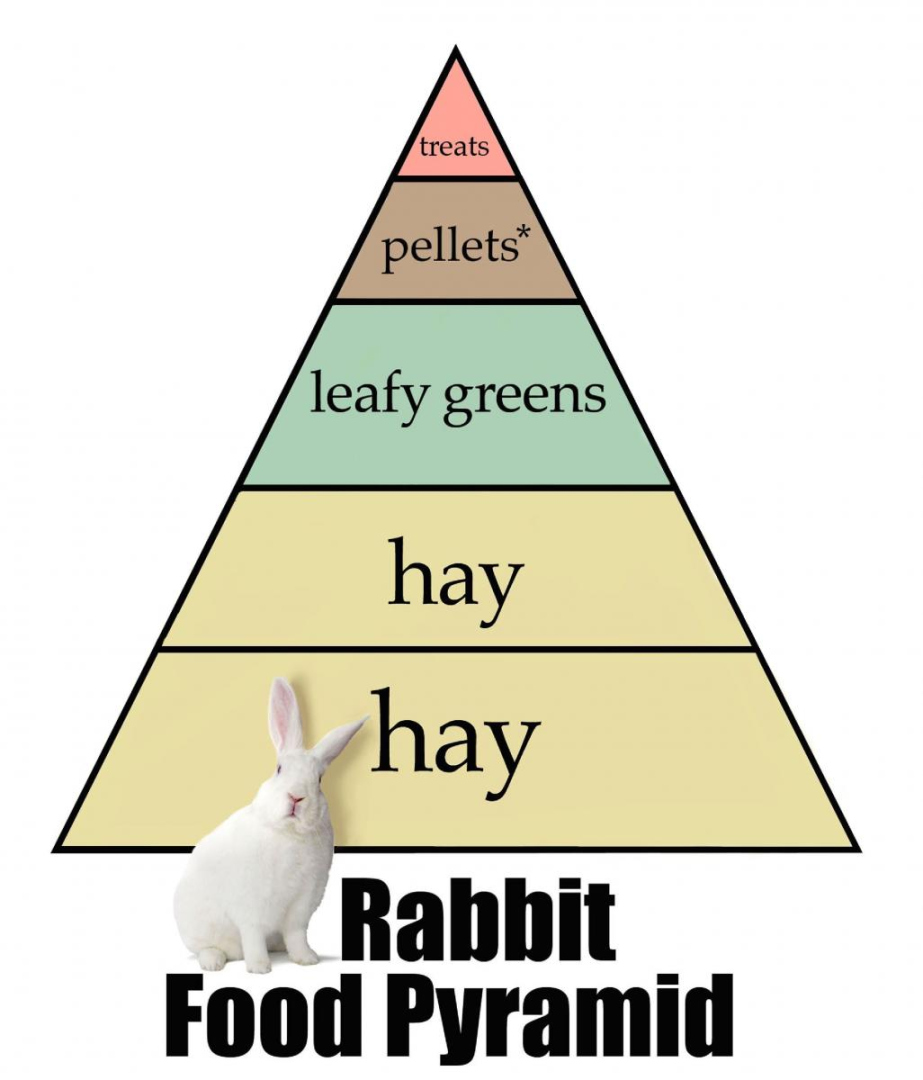How Much Does a Rabbit Eat?
Rabbits are cute and cuddly creatures that make great pets. One of the most important aspects of caring for a rabbit is providing them with a proper diet. But how much does a rabbit actually eat? In this article, we will explore the dietary needs of rabbits and discuss how much food they require on a daily basis.

Rabbit’s Natural Diet
Before diving into the specifics of how much a rabbit should eat, it’s important to understand their natural diet. In the wild, rabbits primarily feed on grass, leafy greens, and other plant materials. Their digestive system is designed to handle a high-fiber, low-fat diet.
When kept as pets, it’s crucial to mimic their natural diet as closely as possible to ensure they receive the necessary nutrients for their overall health and well-being.
Types of Food for a Pet Rabbit
While hay should be the main component of a rabbit’s diet, they also require other types of food to ensure a well-balanced diet. Let’s take a look at the different types of food that can be given to a pet rabbit:
- Hay: Timothy hay is the most commonly recommended type of hay for rabbits. It should make up 80-90% of their daily diet. Hay helps maintain healthy digestion, prevents dental problems, and provides essential nutrients.
- Vegetables: Leafy greens such as romaine lettuce, spinach, kale, and cilantro can be given as a supplement to hay. About 1-2 cups of vegetables per day is sufficient.
- Pellets: Rabbit pellets are commercially produced and formulated to provide the necessary nutrients. They should make up only about 5% of their daily diet and should be given in limited quantities to prevent obesity.
- Treats: Treats such as fruits should be given sparingly, as they are high in sugar and can cause digestive issues if consumed excessively. It’s best to limit treats to small portions no more than a few times a week.
How Much Food Does a Rabbit Need?
The amount of food a rabbit needs can vary depending on factors such as age, size, activity level, and overall health. As a general guideline, an adult rabbit weighing around 5 pounds should consume about 1/4 to 1/2 cups of pellets per day. Additionally, they should have unlimited access to hay and a moderate amount of vegetables.
It’s important to monitor your rabbit’s weight and adjust its food intake accordingly. Overfeeding can lead to obesity and various health issues, while underfeeding can result in malnutrition and weight loss.
Remember to always consult with a veterinarian for personalized advice on your specific rabbit’s dietary needs.
Frequently Asked Questions (FAQs)
1. How often should I feed my rabbit?
It is recommended to provide food for your rabbit twice a day, once in the morning and once in the evening. This ensures a consistent and regular feeding schedule for your pet.
2. Can rabbits eat all types of vegetables?
No, not all vegetables are safe for rabbits to consume. Some vegetables like onions, garlic, and potatoes can be toxic to rabbits and should be avoided. Always research and double-check the safety of a particular vegetable before feeding it to your rabbit.
3. Can I feed my rabbit only pellets?
While rabbit pellets provide essential nutrients, they should not be the sole diet for your rabbit. Pellets should only make up a small portion of their daily food intake. Hay and vegetables should be the primary components of their diet.
4. Can rabbits eat fruits as a treat?
Yes, rabbits can eat fruits, but they should be given in moderation. Fruits are high in sugar and should not exceed a small portion a few times a week. Always remove any seeds or pits before giving fruits to your rabbit.
Providing the right amount and variety of food is crucial for maintaining a healthy and happy rabbit. By following the guidelines in this article and consulting with a veterinarian, you can ensure that your furry friend receives a well-balanced diet that meets their nutritional needs.
Related Articles…
Copyright Notice:
The images displayed here are sourced from the internet, with copyrights held by respective owners. For removal of any copyrighted image, please email us.